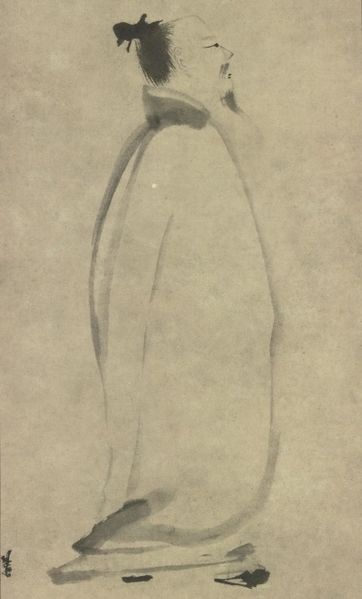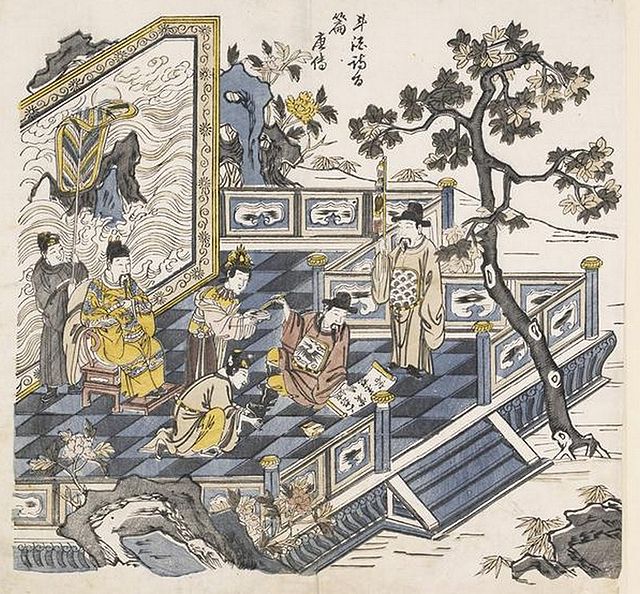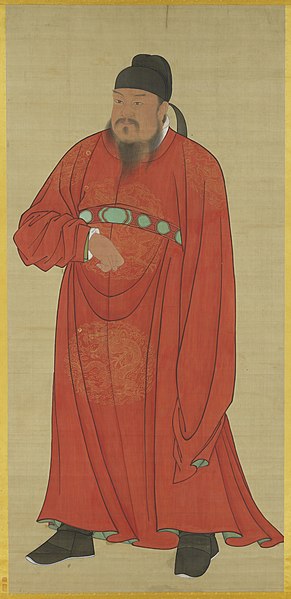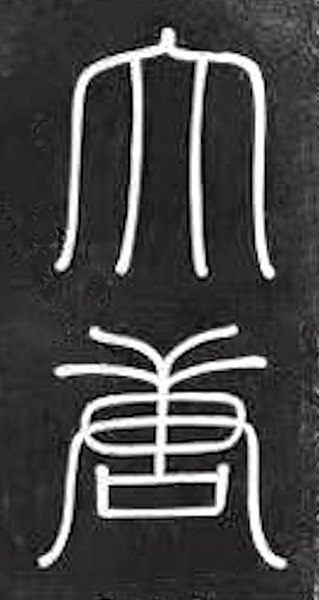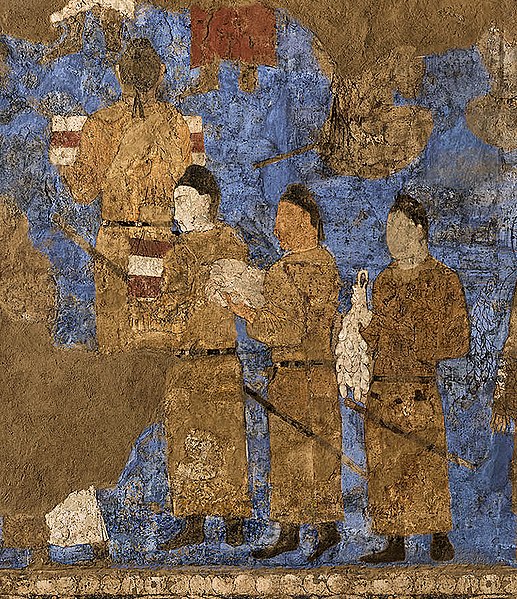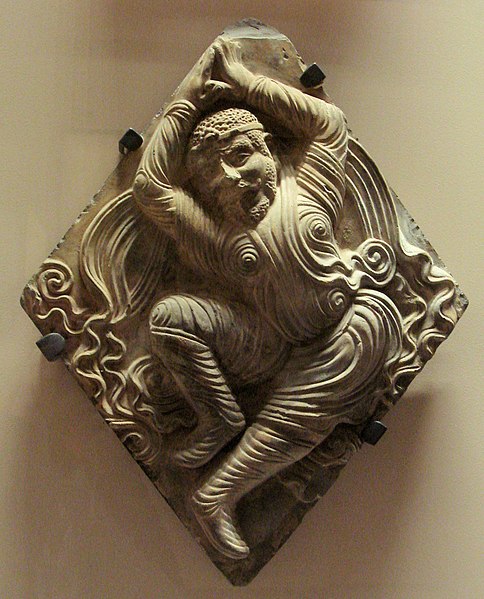Li Bai, formerly pronounced Li Bo, courtesy name Taibai (太白), was a Chinese poet acclaimed as one of the greatest and most important poets of the Tang dynasty and in Chinese history as a whole. He and his friend Du Fu (712–770) were two of the most prominent figures in the flourishing of Chinese poetry under the Tang dynasty, which is often called the "Golden Age of Chinese Poetry". The expression "Three Wonders" denotes Li Bai's poetry, Pei Min's swordplay, and Zhang Xu's calligraphy.
Li Bai Strolling, by Liang Kai (1140–1210)
Li Bai, as depicted in the Nanling Wushuang Pu by Jin Guliang, Ming dynasty
The China of Li Bai and Du Fu
Emperor Minghuang, seated on a terrace, observes Li Bai write poetry while having his boots taken off (Qing dynasty illustration).
The Tang dynasty, or the Tang Empire, was an imperial dynasty of China that ruled from 618 to 907, with an interregnum between 690 and 705. It was preceded by the Sui dynasty and followed by the Five Dynasties and Ten Kingdoms period. Historians generally regard the Tang as a high point in Chinese civilization, and a golden age of cosmopolitan culture. Tang territory, acquired through the military campaigns of its early rulers, rivaled that of the Han dynasty.
Portrait painting, dating to the Ming dynasty (1368–1644), depicting the first Tang emperor Gaozu (born Li Yuan, 566–635)
"Great Tang" (大唐; Dà Táng) in seal characters
Tang emissaries to Sogdian King Varkhuman in Samarkand, 648–651 CE, Afrasiab murals
Sogdian Huteng dancer, Xiuding temple pagoda, Anyang, Henan. Tang dynasty, 7th century

